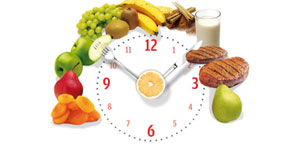[su_heading style=”default” size=”13″ align=”center” margin=”20″]Nutrition Guide – When to Eat? The Forgotten Questions[/su_heading]
Guide : When to Eat? The Forgotten Questions
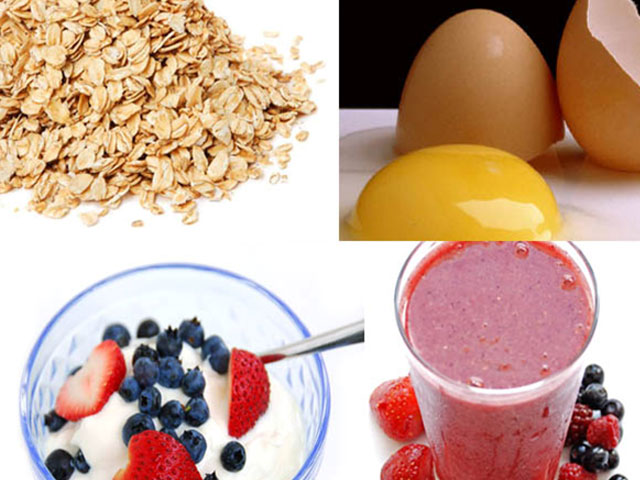
People keep asking me, “Why I’m not getting skinnier, despite eating less?”
My answer is “You eat REAL FOOD at the WRONG TIME!“
How much you eat is not what really matters, as reducing calorie intake doesn’t mean that you will lose weight. What really matters is the time you are giving your body to digest the food. Starvation can lead to slowing of the metabolism that can hamper the calorie burning mechanism. As a result, you will feel lethargic.
Before setting out the mean plan for the day, it is important to talk about morning detoxification.
Morning Detoxification
Detoxification is very important part of the routine. It means pushing away the toxins that enter the body through food, drink or air, out of the system. Water is the best detoxifying agent for the body, so it is recommended that you drink 300 ml to half a liter of water, immediately after you wake up.
There are other methods of detoxifying too. Warm 200 ml water, squeeze in half a lemon and drink it. After drinking this lemon water, take a plastic or wooden spoonful of honey. Remember not to swallow the honey and let it melt in the mouth.
This drink has a positive influence on the gastric tract and intestines and increases secretion of the enzymes. It also converts the toxins into liquid, making it very easy to flush them out. It is noteworthy that detoxification improves digestion.
BREAKFAST
Breakfast is the most important meal of the day. It must consist of adequate proteins and foods that contain all the nine essential amino acids. Amino acids will help reactivate the body and make you energetic. This unavoidable meal should also consist of complex carbohydrates and fat content should be less. The carbohydrates help in the proper functioning of the brain and in reducing excess body fat and weight.
Here are some healthy breakfast ideas:
Start your day with a good breakfast mixed with oats (e.g. oat flakes and milk with some fruit like a banana or strawberry). Oatmeal contains a wide range of minerals, vitamins and antioxidants and is also a good source of iron, protein and carbohydrates. Eating oatmeal can reduce cholesterol and blood pressure. It can also reduce the risk of heart disease and different types of cancer. Rich in fiber, the oat flakes absorb water, which significantly slows down the digestive process and eliminates hunger.
Eggs are the best source of the highest quality proteins. One egg contains 6 gram of protein, plenty of calcium, organic iron and vitamin A and D. Eating an egg is good for healthy skin and vision, because it contains antioxidants known as lutein. People who eat eggs for breakfast, feel fuller and lose fat easily.
Yogurt is rich in calcium, protein, riboflavin and vitamin B. One cup of yogurt has 9.3 gm protein, 253 gm calories and 4.6 gm fat. Drinking a low fat yogurt will help you lose excess weight. If you want to avoid indulging in unnecessary calories and sugars, you should add yogurt to your breakfast.
For a little more sweetness, add some fresh fruit to yogurt and shake it in a blender. Shakes taste delicious and are a great breakfast option. Adding oats to your shake will provide long lasting energy to the body.
LUNCH
Lunch should complement the breakfast. Never have lunch if you are not feeling hungry. Sometimes when you have had a heavy breakfast, it takes the body more time to digest the food and by having lunch you would be overeating. Unlike breakfast, lunch should include a little more protein and complex carbohydrates. Protein foods and vegetable garnish salads should be consumed for lunch to stay healthy.
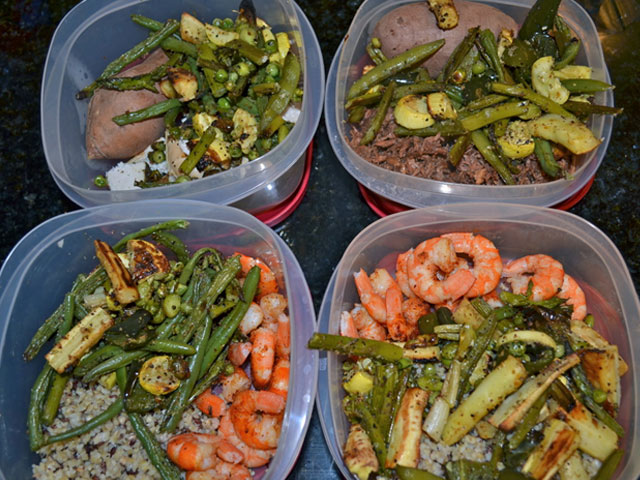
DINNER
Dinner should be consumed at least 2 hours before sleep. Meals should not be very heavy and just enough to satiate the hunger. Dinner should consist of proteins and fats, and possibly exclude the carbohydrates (except those that are absent in certain vegetables). Low-fat cottage cheese is a great choice because it contains slowly decomposed protein (casein), which release amino acids during sleep and help the body to recover properly. Cooked chicken, tuna or eggs are good options too. They are even better when combined with vegetable soup or vegetable salad (cabbage and lettuce). You can add olive oil or apple vinegar as an option too. Nuts are also a great option, however if you want to lose weight, it is best to skip dinner.
SNACKING
The snack meal should be low on calories and consist of simple carbohydrates. This will help in maintaining the optimal levels of blood sugar and make you feel fuller, hence helping avoid unnecessary eating.
Snacks should be taken in between the three major meals of the day. Cereal bars, dark chocolate, fruit, salad, soup, tea, cocoa and coffee are some healthy snacking options that you can implement in your daily meal plan.
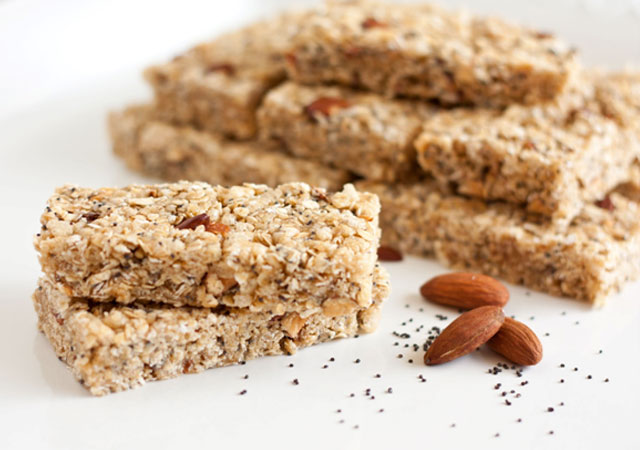
FOOD BEFORE TRAINING
Any meal consumed before a workout, should consist of complex carbohydrates and proteins. Twenty minutes before a workout is the ideal time for eating simple carbohydrates, like a fruit or a naturally drained juice.
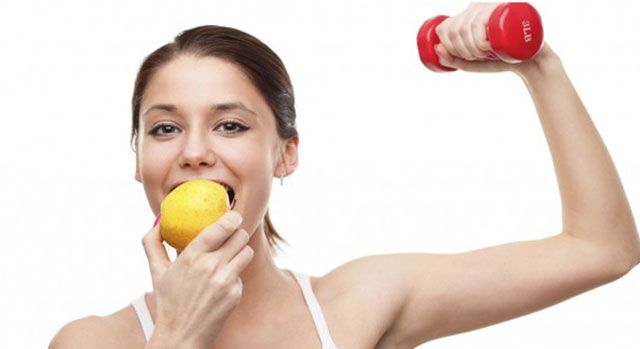
Read on to know more about when and what to eat before a workout.
Working out with a full stomach is not a good idea because it can upset the digestive system. To remain energetic, athletes should give the body some time to digest the food.This procedure generally takes 1 to 4 hours, depending on when, how and what you have eaten. This process is not the same for everyone, so it is very important to know your body.
Daily routine and summer heat, only leave the mornings for exercising. High temperatures can increase the hormones such as Cortisol and Somatropin, which can affect your performance and muscle growth. Morning workouts benefit the immune system and increases the process of burning body fat.
Exercising in the morning could be done on an empty stomach, especially if your last night dinner provided the needed amount of carbohydrates, fats and protein blocks. A portion of brown rice in dinner will help you have an effective training in the morning. Brown rice is rich in carbohydrates with medium glycemic index, fiber, minerals, protein and fatty acids. Unrefined cereals (grind with whole grain), combined with vegetables, is also a good option. A vegetarian diet can also provide great energy, which is needed for a good training.
Taking whey protein in the morning is a great way to start your day. Green tea (due to antioxidant properties), 2-3 biscuits and freshly squeezed carrot juice, lemon, orange or apple are excellent choices. This will fulfill the need of salt, water and organic vitamins. In sports that last for more than 2 hours, there is a need of drinking water before training. During the training, it is recommended that you drink 1 cup of water every 20 to 30 minutes. The water temperature should be 10-20 degrees.
It’s good to mention the fact that because glucose is the preferred energy source for better exercise and physical activity, athletes should eat those products and foods, which are rich in carbohydrates and are easy to consume. This includes products such as fruit, bread, energy drinks and other products.
AFTER TRAINING
If you are exercising on a daily basis, eating after a workout is very important. You should expect great results by importing this meal into your daily plan. It will fasten your recovery and will bring your body’s protein synthesis to its maximum. During and immediately after training, it is suggested to take a meal that contains simple carbohydrates and is rich in electrolytes and water. Thirty minutes after the training is the best time for importing fast decomposed proteins (Whey) and carbohydrates (white bread). Don’t forget the chocolate milk or yogurt as few other good options, as well as bananas combined with rice.
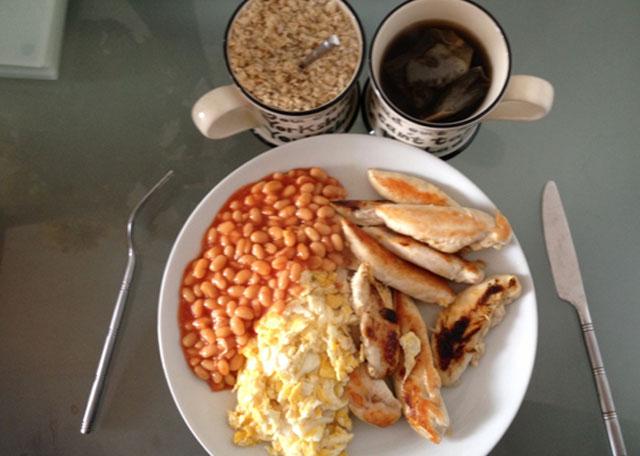
VITAMIN SUPPLEMENTS
If you are taking any vitamin / mineral supplements, it is recommended to take them in morning, noon or night. If you take the supplements only twice a day, then that should be done in the morning and evening. If you have to take them only once a day, then you should prefer the evening time.
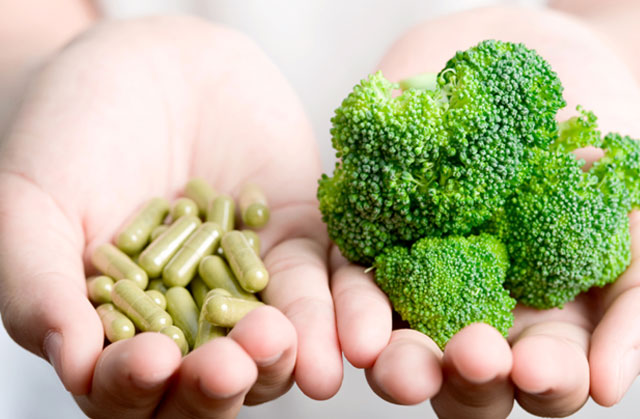
[su_note note_color=”#b71319″ text_color=”#ffffff” radius=”3″ class=””]Do you like this post ? Sharing is Caring ![/su_note]


